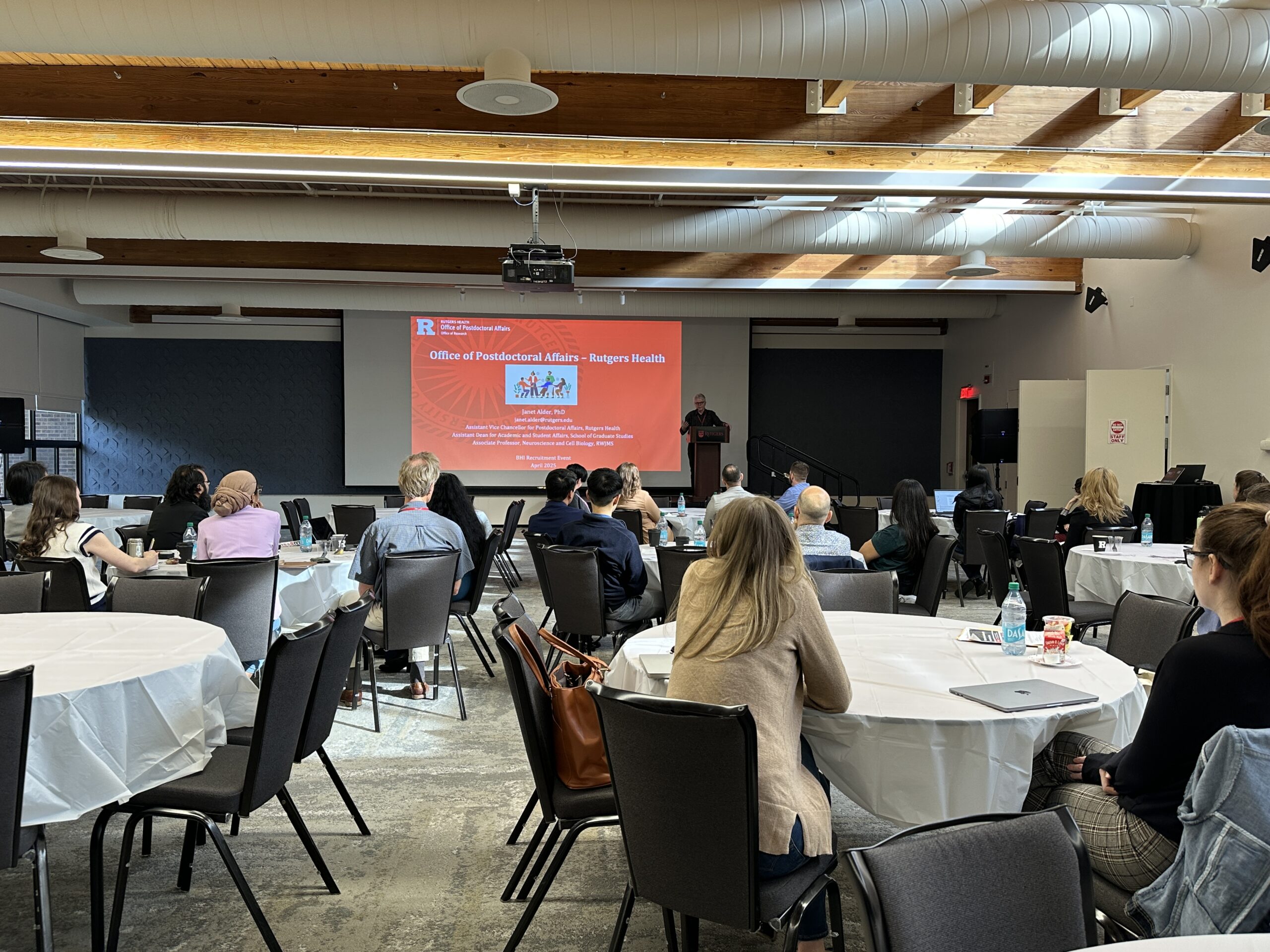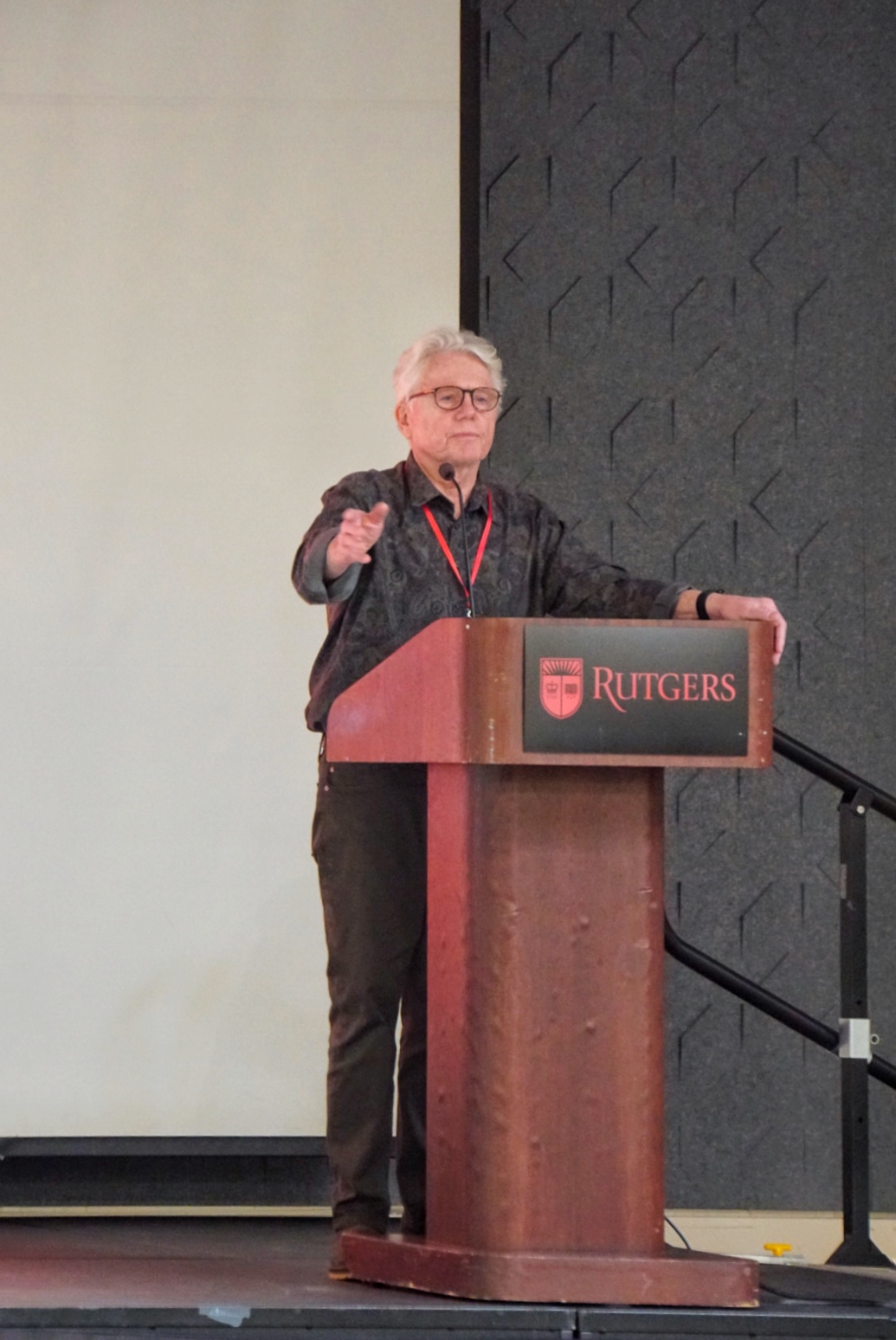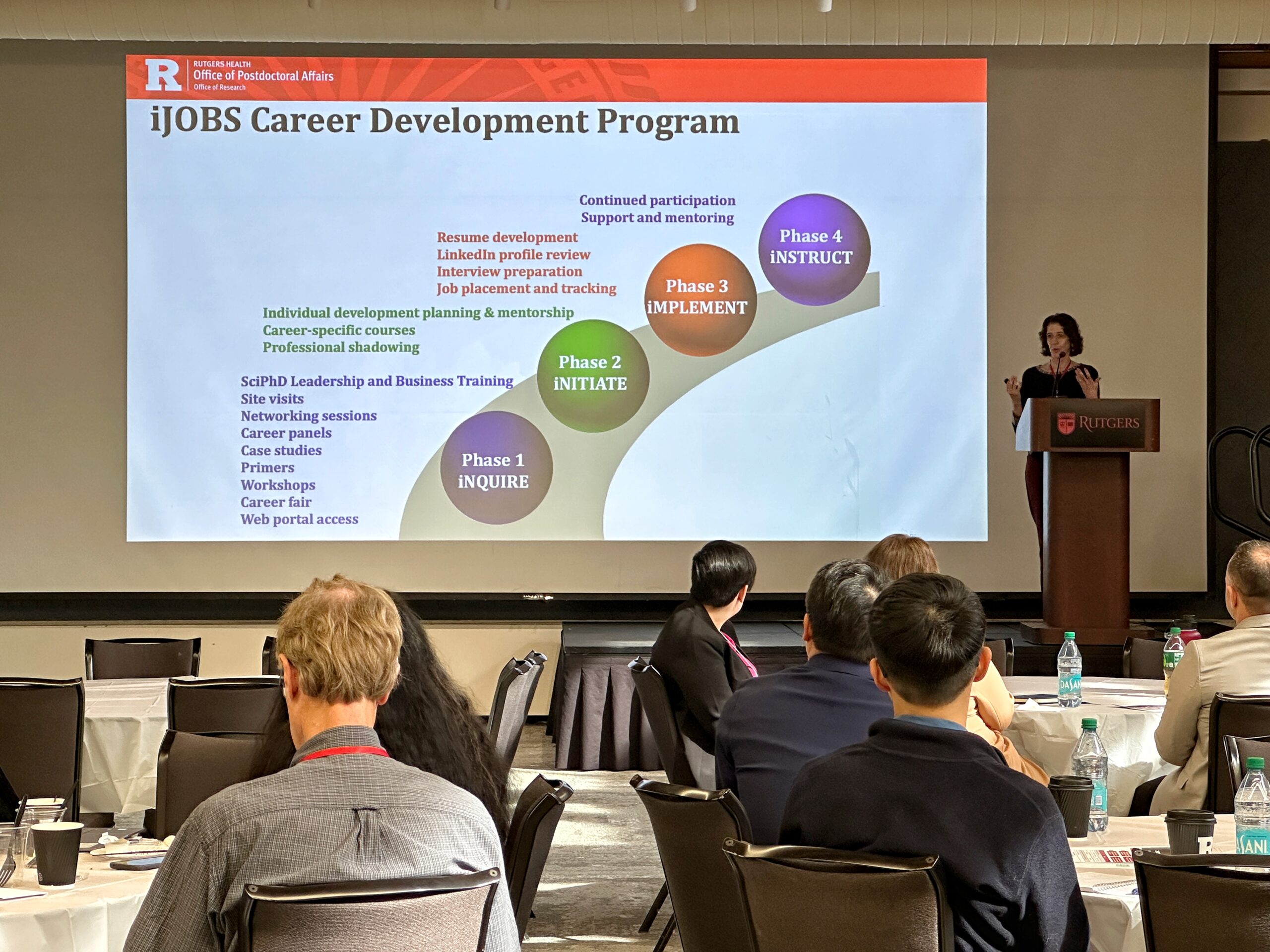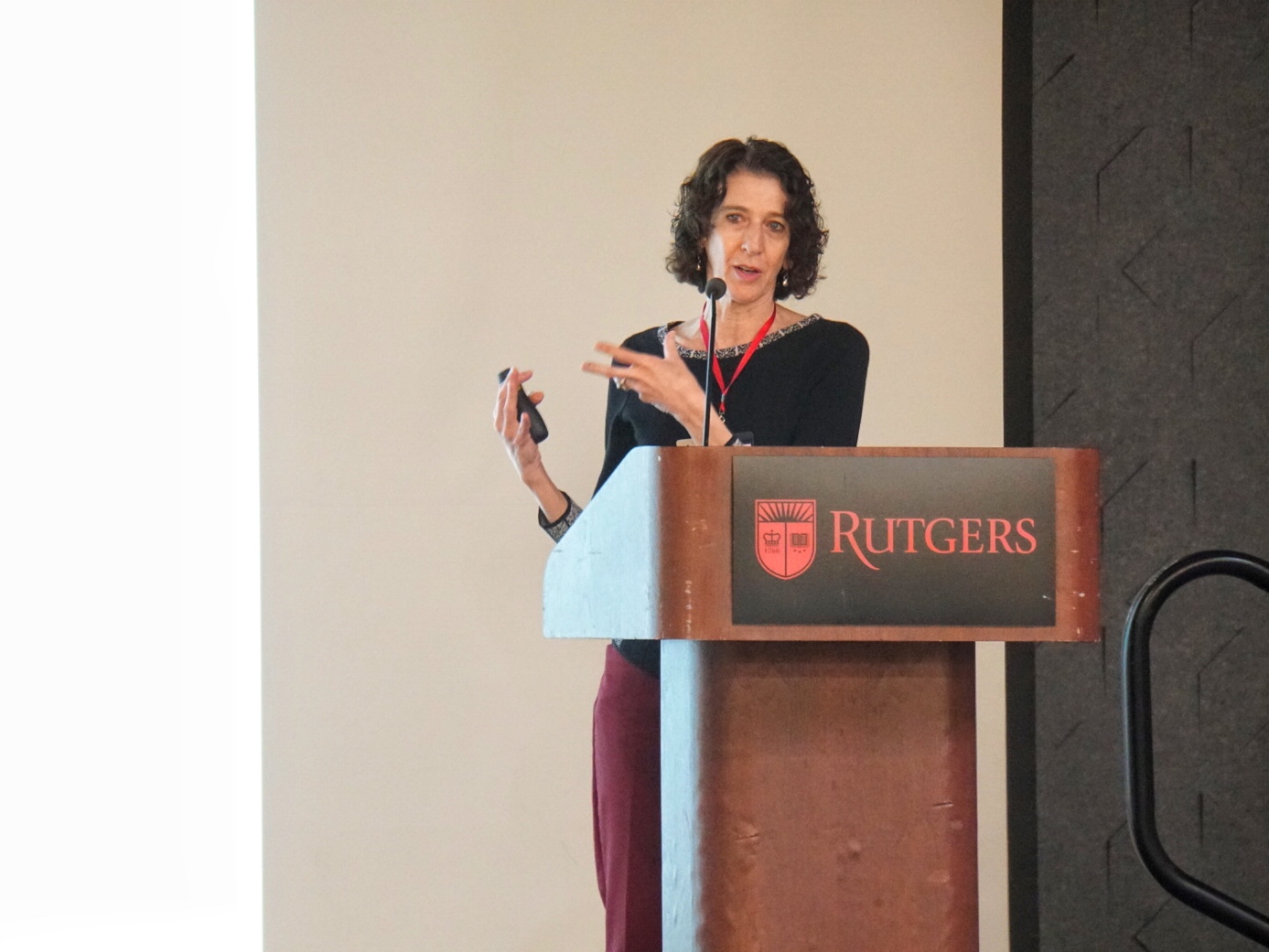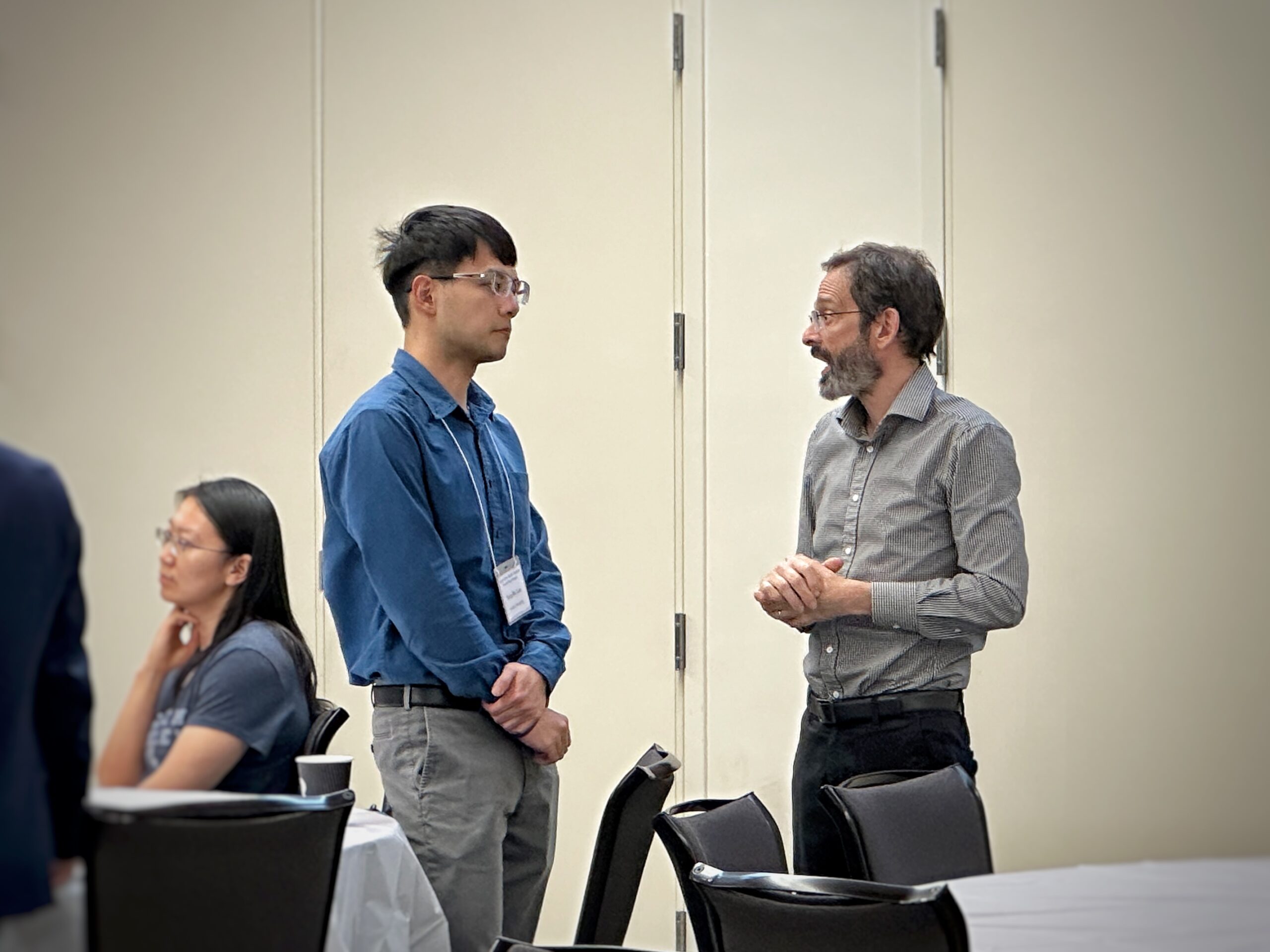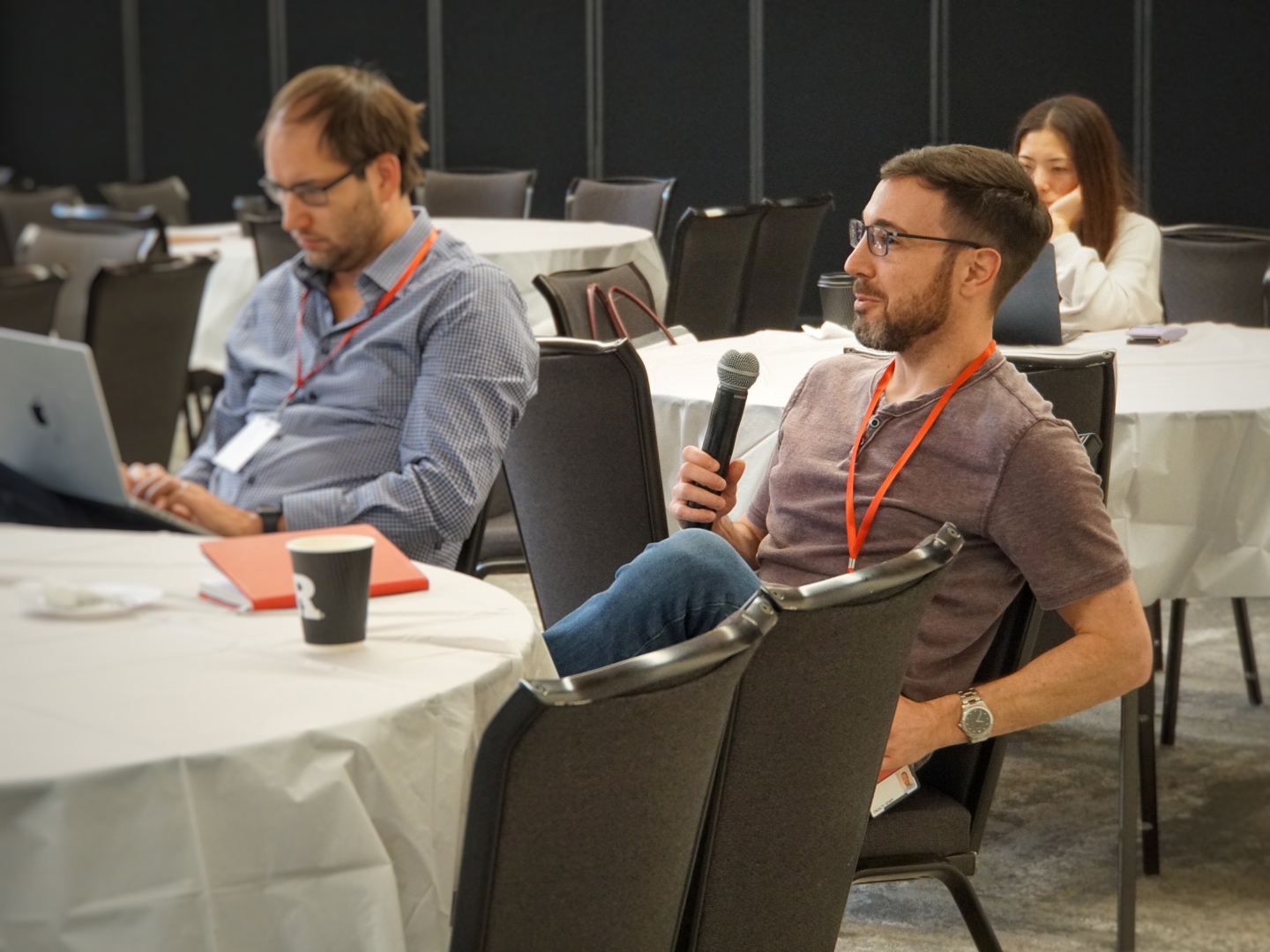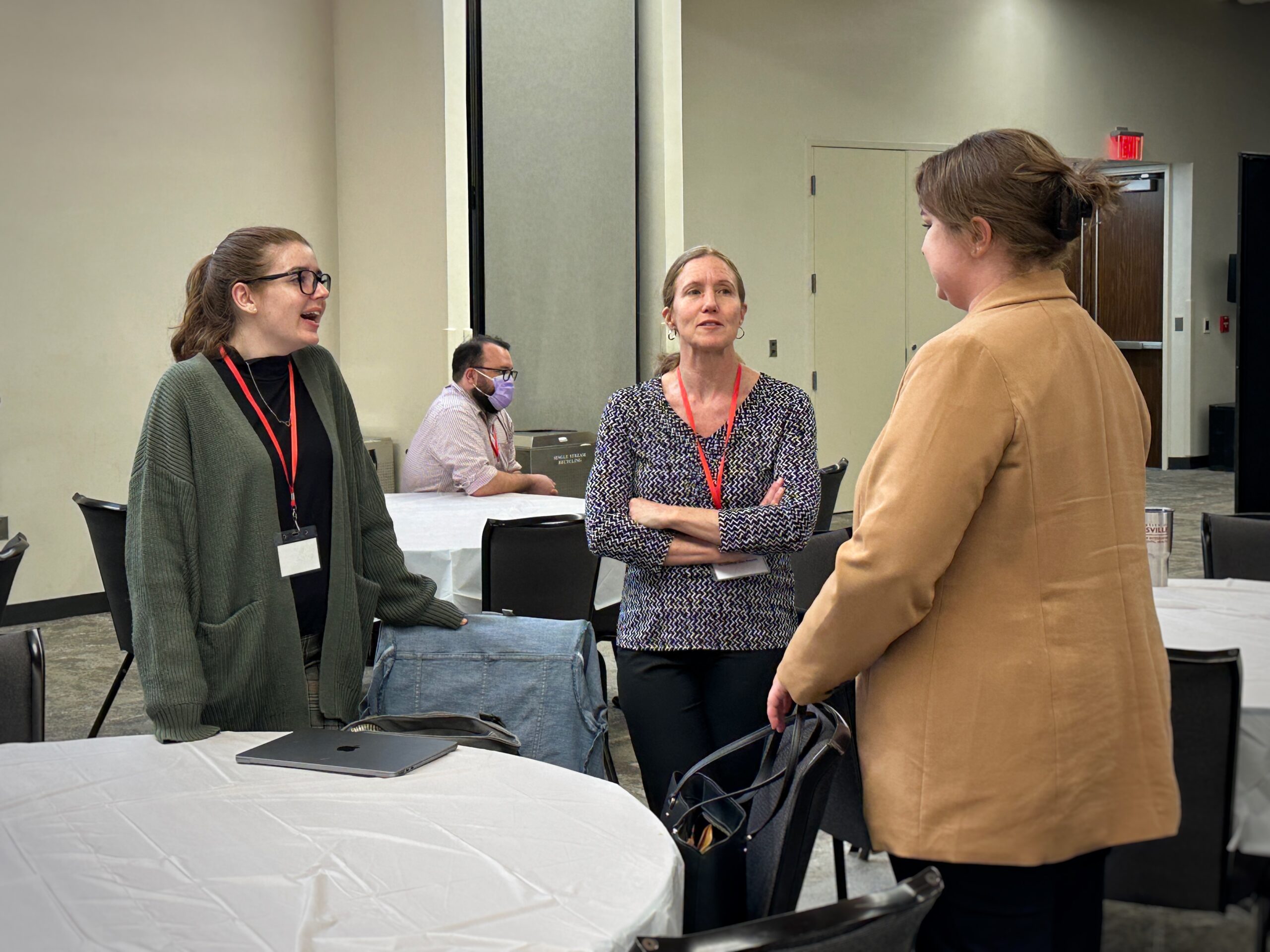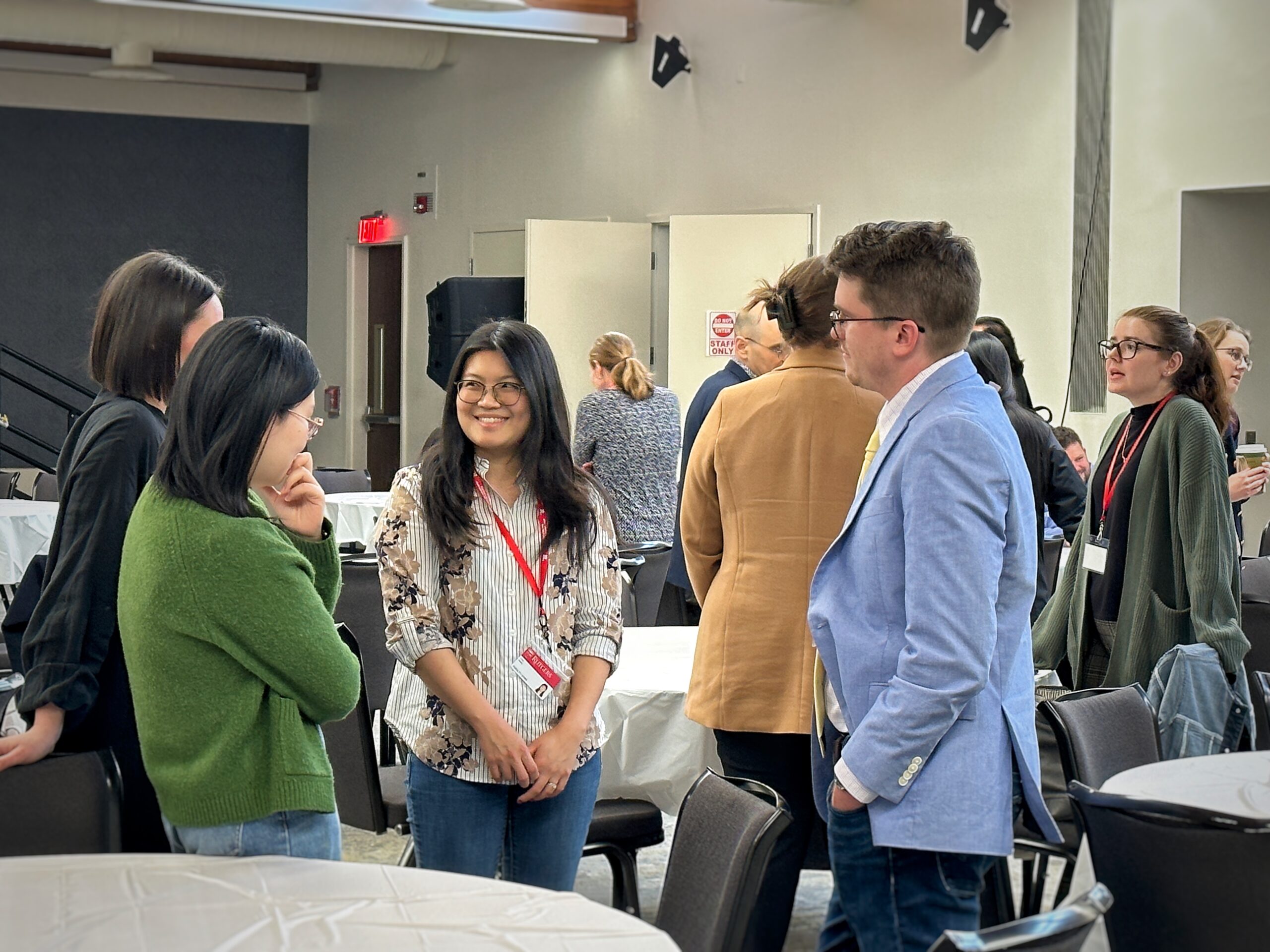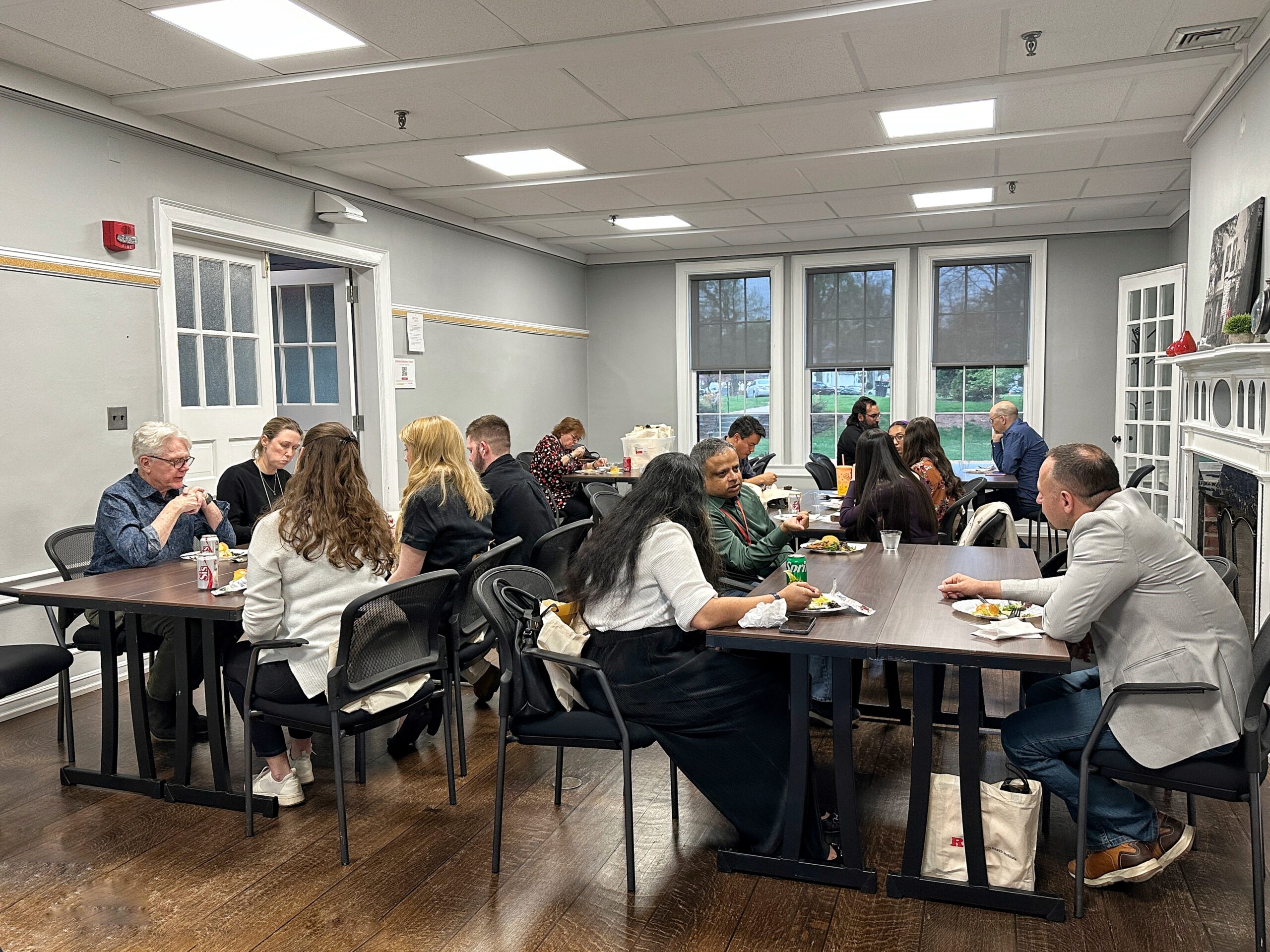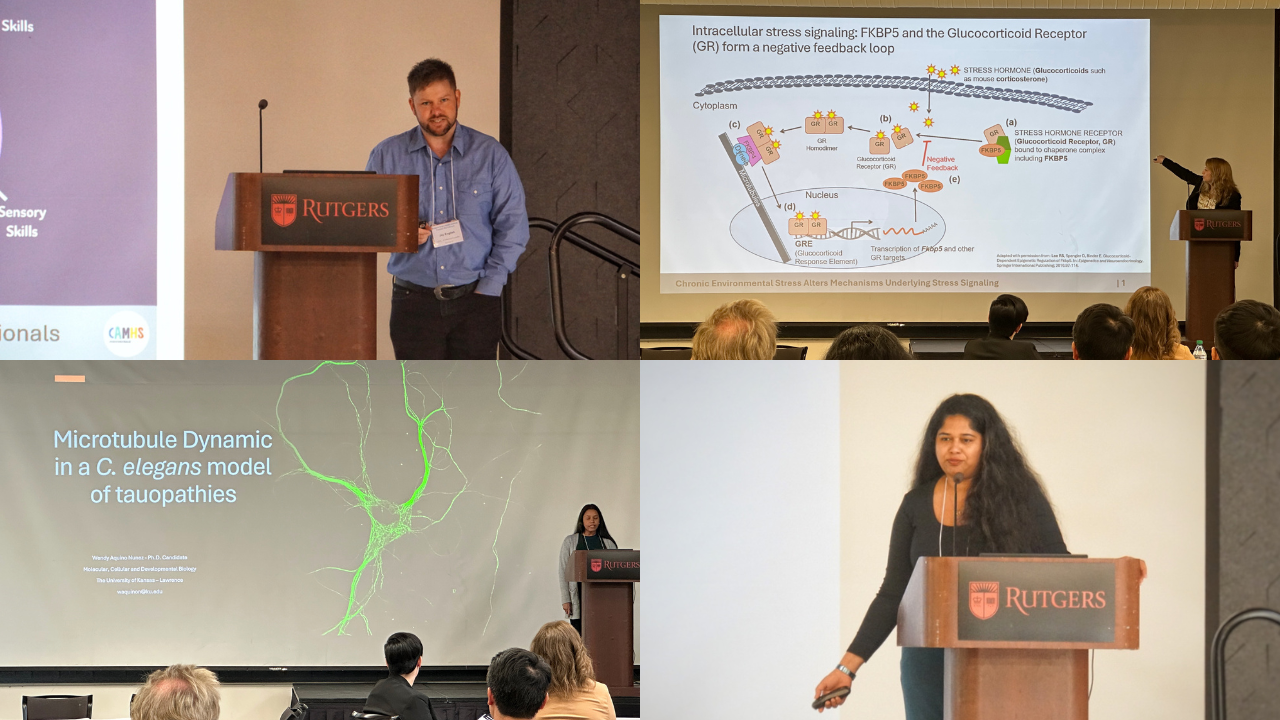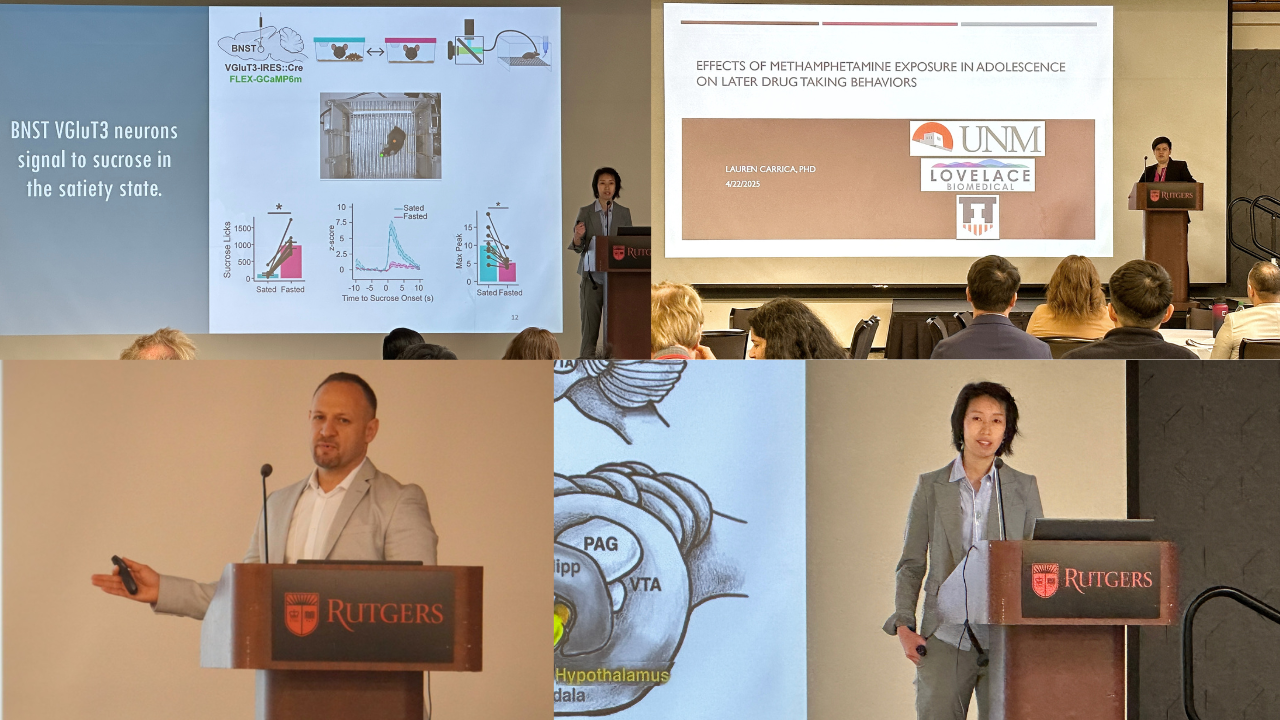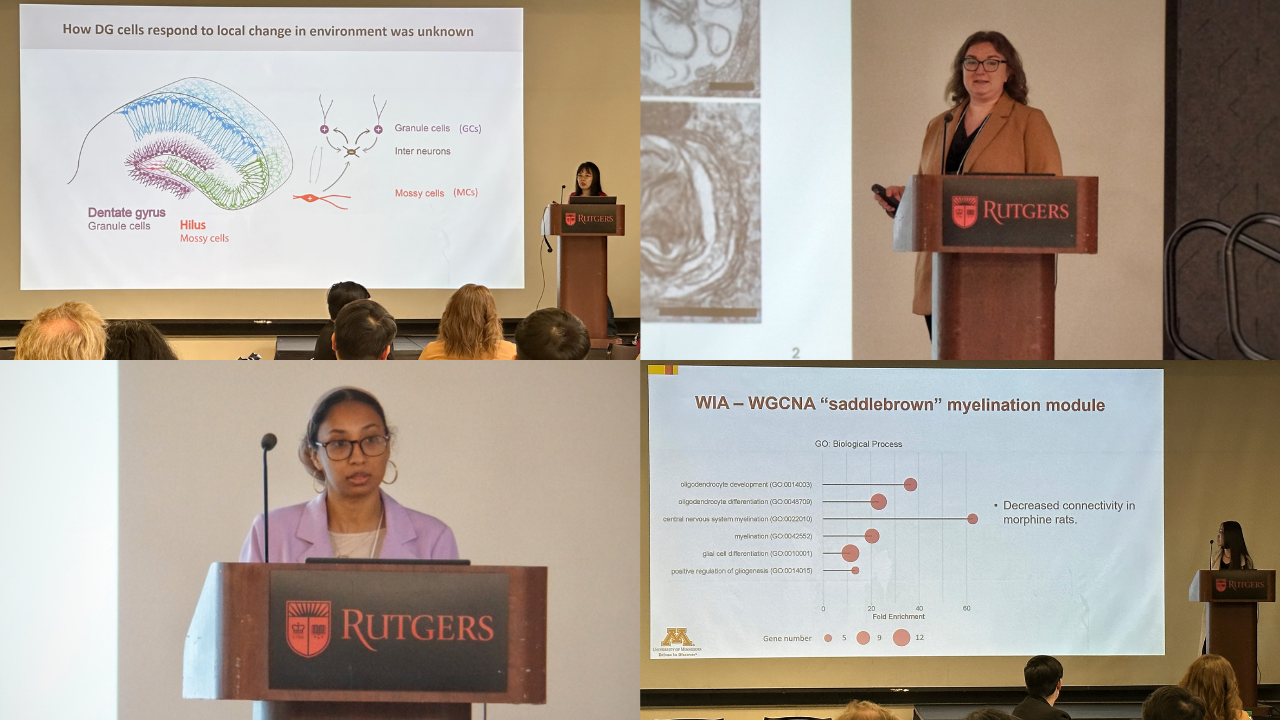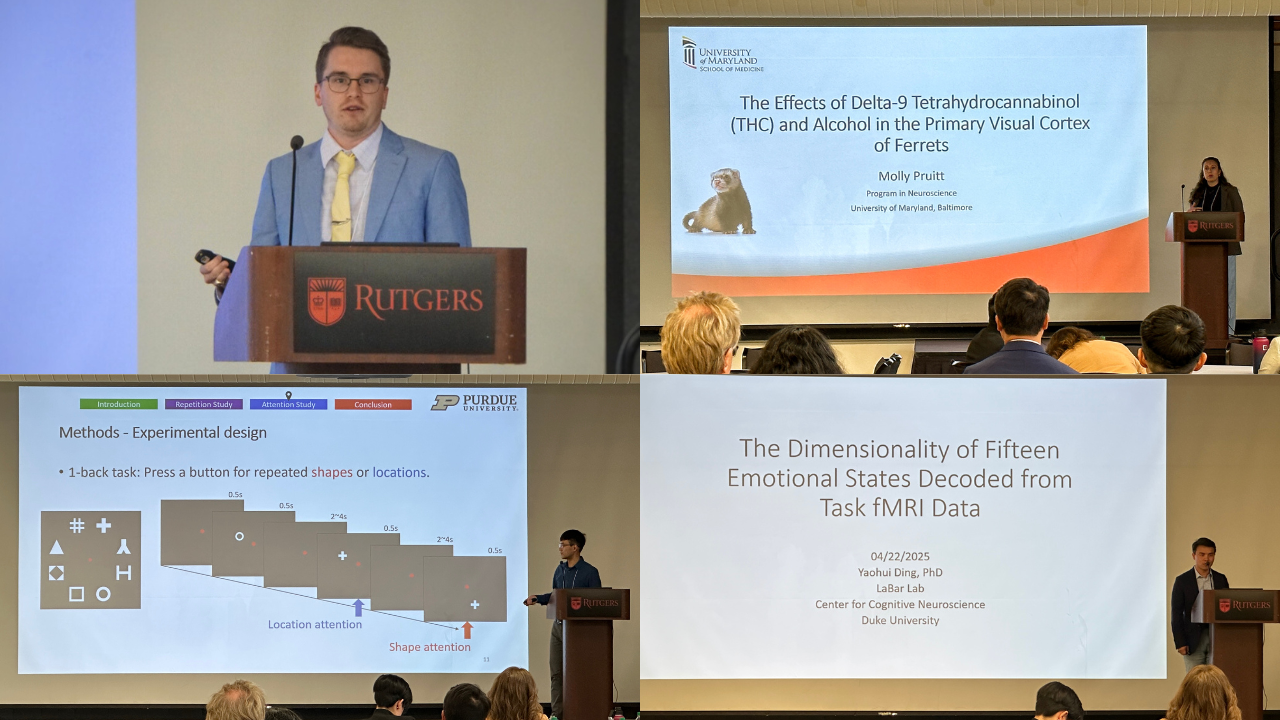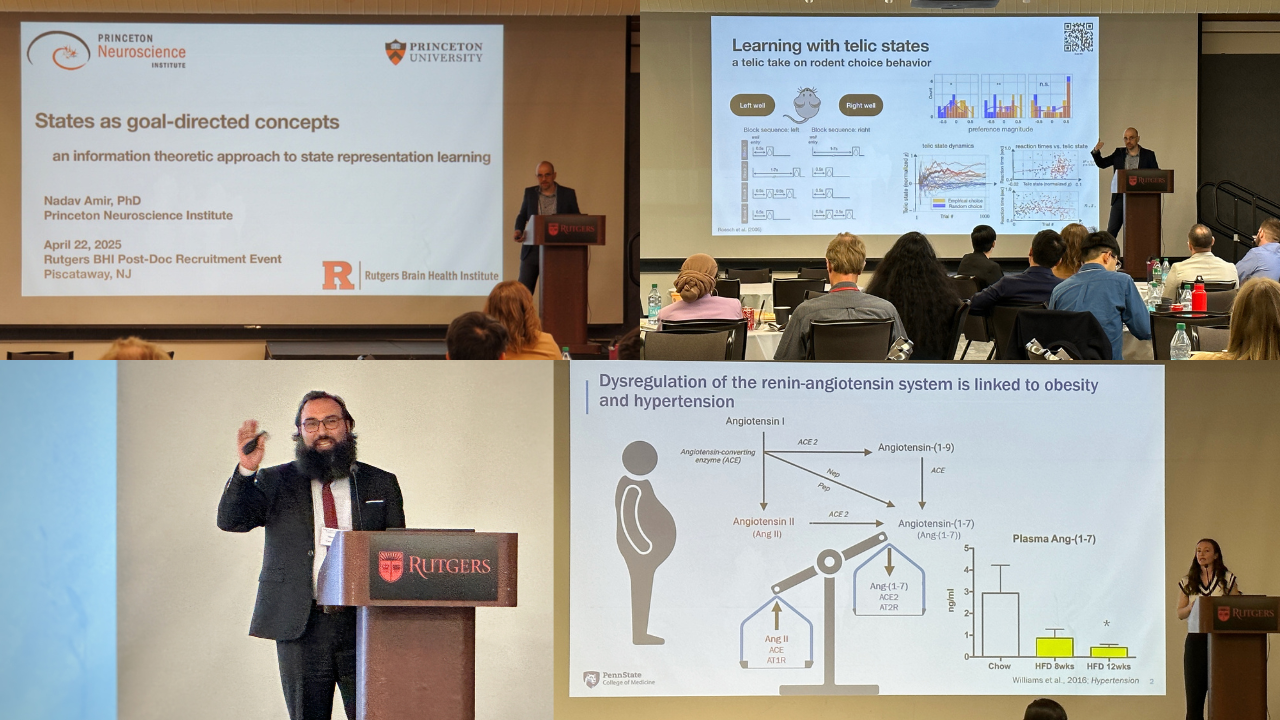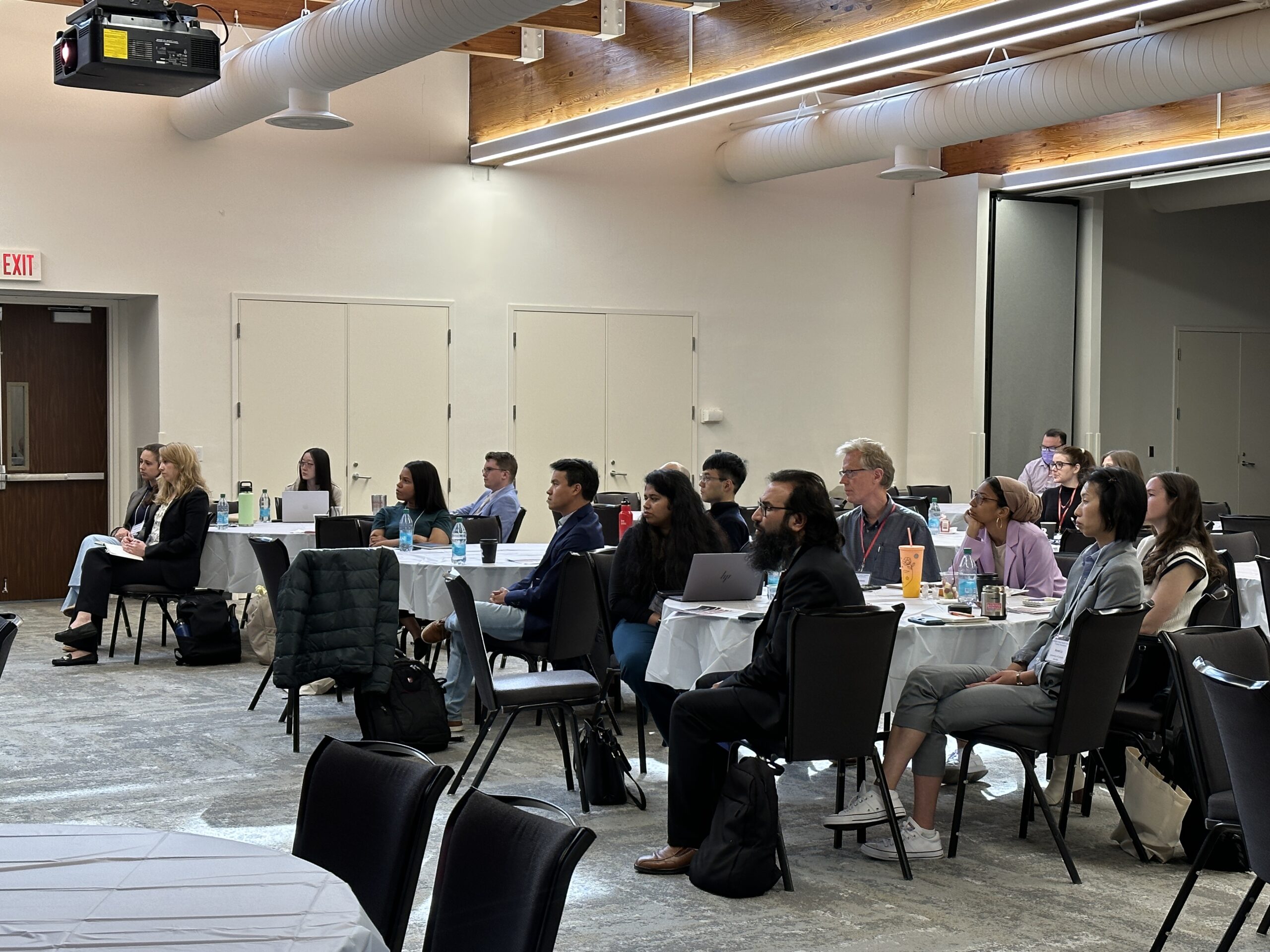
2025 Rutgers Brain Health Institute Postdoc Recruitment Event
We hosted the 2025 Rutgers Brain Health Institute (BHI) Postdoc Recruitment Event on April 22–23, 2025. We received over 100 applications and selected 19 highly qualified graduate students and postdoctoral fellows for a two-day, all-expenses-paid visit to Rutgers to explore postdoctoral opportunities in neuroscience and brain health research at BHI. The visiting candidates gave short talks and met with faculty who have open positions and are interested in recruiting.
Advance your career with exceptional postdoc training in neuroscience at Rutgers
To learn more about postdoctoral support & resources at Rutgers click on the links below:

BHI Labs Recruiting Post-docs
Connect with leading BHI faculty who are actively recruiting postdoctoral fellows. Explore exciting research opportunities and take the next step in your scientific career!
Join the Next Generation of Neuroscience Leaders
Explore opportunities for trainees at the Brain Health Institute. Learn how BHI supports the growth and development of future neuroscientists through mentorship, resources, and hands-on research experience.
